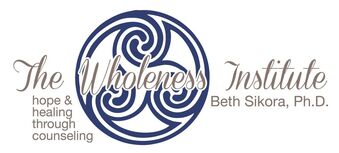Cognitive Changes Questionnaire
Please rate yourself (or the person you are evaluating) on each of the symptoms listed below using the following scale.
0 Never
1 Rarely
2 Occasionally
3 Frequently
4 Very Frequently
NA Not Applicable
____ 1. is easily distracted
____ 2. has difficulty sustaining attention span for most tasks
____ 3. has trouble listening when others are talking
____ 4. has difficulty following through (procrastination) on tasks or instructions
____ 5. has difficulty keeping an organized area (room, desk, book bag, filing cabinet, locker, etc.)
____ 6. has trouble with time, for example, is frequently late or hurried, tasks take longer than expected
____ 7. has tendency to lose things
____ 8. makes careless mistakes, poor attention to detail
____ 9. is forgetful
____ 10. is tired
____ 11. talks excessively
____ 12. is impulsive (doesn’t think through comments or actions before they are said or done)
____ 13. has a tendency toward compulsive behavior
____ 14. misinterprets comments as negative when they are not
____ 15. has periods of spaciness or confusion
____ 16. perceives visual changes, such as double vision or difficulty reading
____ 17. is sensitive or mildly paranoid
____ 18. has headaches
____ 19. has dark thoughts that may involve suicide
____ 20. has lowered interest in things that are usually considered fun
____ 21. undergoes sleep changes (too much or too little)
____ 22. is angry or aggressive
____ 23. is sensitive to noise or light,
For the following just answer yes or no.
____ 24. ringing in ears
____ 25. headaches Describe: _________________________
____ 26. decreased taste or smell, or increased sensitivity to tastes or smells
____ 27. dizziness or balance problems
____ 28. noise sensitivity
____ 29. sleep problems Describe: ____________________________
____ 30. change in your personality that you or others notice
____ 31. memory problems
____ 32. seizures
____ 33. tremors
For results, please see our office or another qualified health professional or specialist who specifically works with concussions.
0 Never
1 Rarely
2 Occasionally
3 Frequently
4 Very Frequently
NA Not Applicable
____ 1. is easily distracted
____ 2. has difficulty sustaining attention span for most tasks
____ 3. has trouble listening when others are talking
____ 4. has difficulty following through (procrastination) on tasks or instructions
____ 5. has difficulty keeping an organized area (room, desk, book bag, filing cabinet, locker, etc.)
____ 6. has trouble with time, for example, is frequently late or hurried, tasks take longer than expected
____ 7. has tendency to lose things
____ 8. makes careless mistakes, poor attention to detail
____ 9. is forgetful
____ 10. is tired
____ 11. talks excessively
____ 12. is impulsive (doesn’t think through comments or actions before they are said or done)
____ 13. has a tendency toward compulsive behavior
____ 14. misinterprets comments as negative when they are not
____ 15. has periods of spaciness or confusion
____ 16. perceives visual changes, such as double vision or difficulty reading
____ 17. is sensitive or mildly paranoid
____ 18. has headaches
____ 19. has dark thoughts that may involve suicide
____ 20. has lowered interest in things that are usually considered fun
____ 21. undergoes sleep changes (too much or too little)
____ 22. is angry or aggressive
____ 23. is sensitive to noise or light,
For the following just answer yes or no.
____ 24. ringing in ears
____ 25. headaches Describe: _________________________
____ 26. decreased taste or smell, or increased sensitivity to tastes or smells
____ 27. dizziness or balance problems
____ 28. noise sensitivity
____ 29. sleep problems Describe: ____________________________
____ 30. change in your personality that you or others notice
____ 31. memory problems
____ 32. seizures
____ 33. tremors
For results, please see our office or another qualified health professional or specialist who specifically works with concussions.
